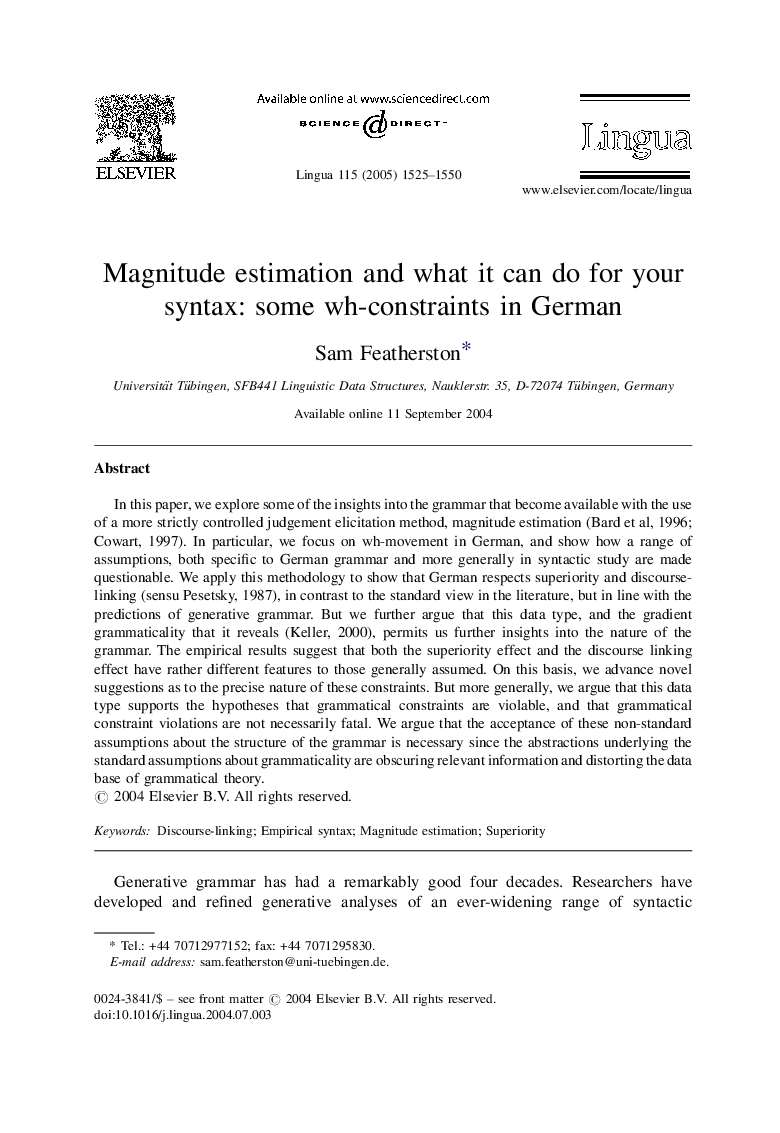| Article ID | Journal | Published Year | Pages | File Type |
|---|---|---|---|---|
| 10461148 | Lingua | 2005 | 26 Pages |
Abstract
In this paper, we explore some of the insights into the grammar that become available with the use of a more strictly controlled judgement elicitation method, magnitude estimation (Bard et al, 1996; Cowart, 1997). In particular, we focus on wh-movement in German, and show how a range of assumptions, both specific to German grammar and more generally in syntactic study are made questionable. We apply this methodology to show that German respects superiority and discourse-linking (sensu Pesetsky, 1987), in contrast to the standard view in the literature, but in line with the predictions of generative grammar. But we further argue that this data type, and the gradient grammaticality that it reveals (Keller, 2000), permits us further insights into the nature of the grammar. The empirical results suggest that both the superiority effect and the discourse linking effect have rather different features to those generally assumed. On this basis, we advance novel suggestions as to the precise nature of these constraints. But more generally, we argue that this data type supports the hypotheses that grammatical constraints are violable, and that grammatical constraint violations are not necessarily fatal. We argue that the acceptance of these non-standard assumptions about the structure of the grammar is necessary since the abstractions underlying the standard assumptions about grammaticality are obscuring relevant information and distorting the data base of grammatical theory.
Related Topics
Social Sciences and Humanities
Arts and Humanities
Language and Linguistics
Authors
Sam Featherston,
